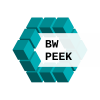

PEEK vs PPS are high-performance engineering plastics, they hold an unassailable position in numerous sectors including aerospace engineering, automobile production, and electronic and electrotechnical industries owing to the superb inherent characteristics of their material. This article will also provide a detailed comparison of these two materials with a special emphasis on their performance, usage, benefits, and drawbacks.
| Property | PEEK | PPS |
| Long-term temperature resistance | 250°C | 220°C |
| Short-term temperature resistance | 300°C | 260°C |
| Melting point | 340°C | 280°C |
| Tensile strength | 115 MPa | 105 MPa |
| Flexural strength | Higher than PPS | - |
| Flexural modulus | Higher than PPS | - |
| Elongation at break | Higher than PPS | - |
| Heat deflection temperature | Higher than PPS | - |
| Cost | Higher | Lower |
| Flowability | Poorer | Better |
| Shrinkage and sink marks during molding | More | Less |
| Compatibility with inorganic fillers | Good | Excellent |
| Applications | Aerospace, automotive, medical devices | Electronics, electrical, automotive parts |
| Aspect | PEEK | PPS |
| Thermal Conductivity | Lower thermal conductivity, leading to high tool temperatures during cutting. | Similar thermal characteristics but generally easier to manage during machining. |
| Hardness | High hardness, which increases cutting tool wear and requires specialized tools. | Moderate hardness, making it easier to machine compared to PEEK. |
| Cutting Tools | Requires advanced cutting tools, often coated to withstand wear and high temperatures. | Can be machined with standard tools, often with less wear and tear. |
| Cutting Conditions | Typically requires lower cutting speeds and careful management of heat to prevent tool damage. | More forgiving in terms of cutting conditions, allowing for higher speeds and feeds. |
| Surface Finish | Achieving a good surface finish can be challenging due to its toughness. | Generally easier to achieve a smooth surface finish. |
| Cooling and Lubrication | Effective cooling and lubrication are critical to manage heat generation during machining. | Cooling is still important, but the requirements are less stringent than for PEEK. |
| Material | Advantages | Disadvantages |
| PEEK | Outstanding resistance to heat and chemical corrosion ensures uptime under the most adverse conditions. It has very excellent mechanical properties coupled with self-lubricating characteristics, hence fitting applications involving high-performance mechanical components. | Higher cost inhibits the possibility of application in cost-sensitive situations. The difficulty of machining requires special techniques and related equipment to process it. |
| PPS | Excellent resistance to heat, stability from a chemical perspective, and ability to apply in numerous industrial environments. Less expensive than PEEK, with improved machinability. | Lower resistance to temperature and chemical corrosion than that of PEEK limits its application in some high-end uses. It possesses mechanical properties, as well as self-lubricating characteristics that are worse than PEEK, which makes it unsuitable for components in extremely high load applications. |
PEEK VS PPS are popular engineering plastics exhibiting their strengths and weaknesses. During material selection, one needs to decide upon a material based on the requirement of the application and the cost budget. With its excellent heat resistance and mechanical properties, PEEK has an advantage in high-end application fields. The relatively low cost and good comprehensive performance of PPS make it possible to be applied in more areas. During the development process of material science, the application area and property of both materials will be extended and improved further.
If you have any questions about PEEK VS PPS, please contact us and we will answer them for free.
Zhejiang Bw Industrial invested 15 million yuan in the newly built PEEK application technology research and development center, which has been put into use. With the help of this research and development center, our technical personnel can provide many technical services for the PEEK industry, mainly including: